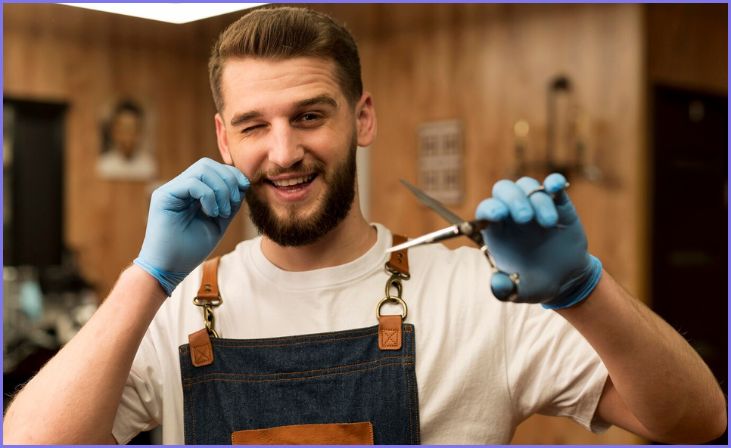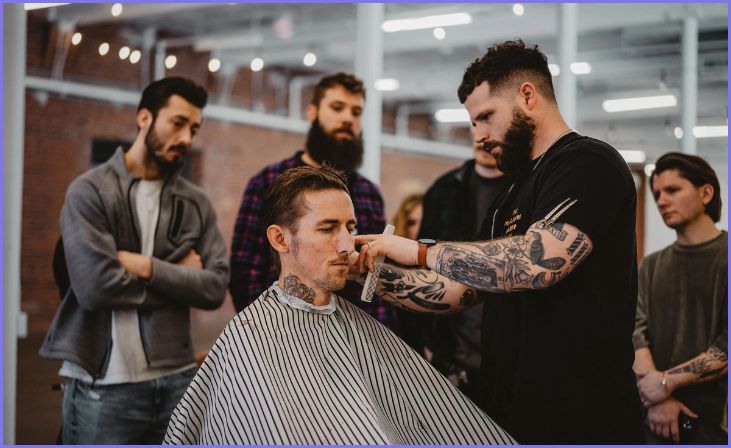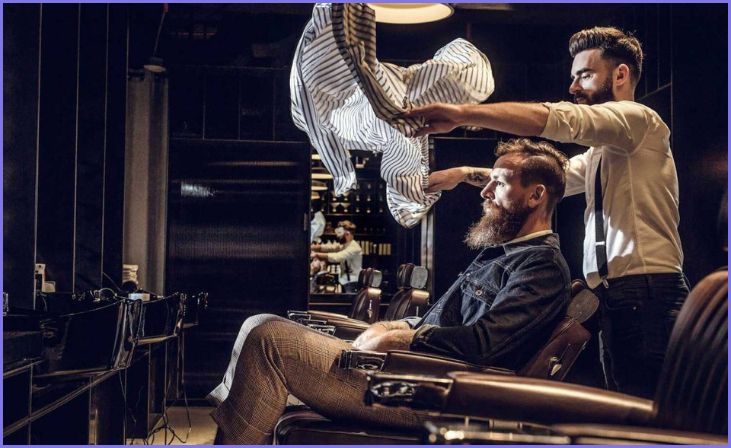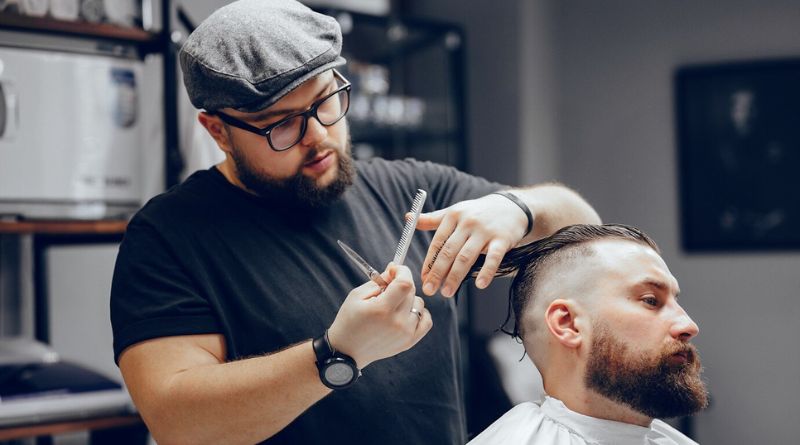Embarking on a career as a barber is an exciting venture, but the conventional route of attending a barber school may not align with everyone’s circumstances. Fortunately, there are alternative paths to obtaining a barber license that bypass the traditional classroom setting. In this blog, we’ll explore unconventional methods, providing valuable insights and practical steps for those who aspire to become a licensed barber without undergoing formal schooling.
From apprenticeships and self-directed learning to networking and obtaining temporary licenses, this guide aims to shed light on diverse approaches, empowering individuals to carve their unique journey into the thriving world of barbering. Whether you’re constrained by time, finances, or simply prefer a more flexible learning experience, discover how you can unlock the doors to a fulfilling career as a licensed barber on your terms.
How to Get a Barber License
Navigate the path to becoming a licensed barber with insights on training, exams, and diverse approaches for a rewarding career.
Research State Requirements
Researching state requirements is a crucial first step for anyone aspiring to obtain a barber license. Each state has its own set of regulations and prerequisites for licensure, which can include specific educational requirements, training hours, and examinations. By thoroughly understanding these state-specific guidelines, individuals can tailor their approach to meet the necessary criteria.
This research also helps in determining if there are alternative paths to licensure, such as apprenticeships or temporary licenses. Whether online or through direct contact with the state licensing board, this information ensures that aspiring barbers are well-informed about the steps and qualifications needed to embark on their journey towards becoming a licensed professional in the field of barbering.
Also Read- How to Open a Hair Salon: A Guide to Get You Started
Apprenticeship Programs
Apprenticeship programs serve as valuable alternatives for individuals seeking to obtain a barber license without attending a traditional school. These programs provide hands-on, practical training under the guidance of experienced barbers within a real-world salon or barbershop setting. Apprenticeships typically involve completing a specified number of training hours, as mandated by state regulations, before being eligible to take the licensing exam.
This immersive learning experience allows apprentices to develop essential skills in haircutting, styling, and client interaction while gaining insights into the daily operations of a barbering business. Choosing an apprenticeship route offers a dynamic and personalized approach to education, fostering a strong foundation for future success in the barbering industry. Aspiring barbers can benefit from the mentorship and real-world application of skills that apprenticeship programs uniquely provide.
Self-Directed Learning

Self-directed learning is a flexible and increasingly popular approach for individuals aiming to obtain a barber license without formal schooling. In this method, aspiring barbers take charge of their education by utilizing online resources, instructional videos, and educational materials to enhance their skills. Platforms like YouTube, educational websites, and online courses offer a wealth of content covering basic to advanced barbering techniques. While self-directed learning provides convenience and autonomy, hands-on practice remains essential for mastering the craft.
This approach allows learners to progress at their own pace, making it suitable for those with busy schedules or financial constraints. However, it’s crucial for individuals engaging in self-directed learning to supplement their knowledge with practical experience, potentially through apprenticeships or workshops, ensuring a well-rounded skill set and preparation for the licensing exam.
Build a Portfolio
Building a portfolio is a crucial step for individuals aspiring to obtain a barber license without attending a traditional school. A portfolio serves as a visual showcase of your skills and capabilities, providing potential employers or clients with tangible evidence of your expertise. Include high-quality photographs and videos showcasing a variety of hairstyles, haircuts, and grooming techniques.
Organize your portfolio to demonstrate your versatility, creativity, and attention to detail. This collection not only acts as a personal record of your progress but also becomes a powerful tool for marketing yourself within the industry. A well-curated portfolio can make a lasting impression, illustrating your dedication to the craft and your ability to deliver exceptional results, ultimately enhancing your prospects as you pursue a successful career in barbering.
Networking and Mentorship

Networking and mentorship play pivotal roles for individuals seeking to obtain a barber license without traditional schooling. Building connections within the barbering community opens doors to valuable opportunities, knowledge exchange, and guidance. Attend local events, engage in online forums, and connect with seasoned barbers who can offer insights and mentorship. Establishing relationships within the industry not only provides a support system but may also lead to apprenticeship opportunities or job placements.
A mentor can offer valuable advice, share experiences, and contribute to your professional growth. Networking, both online and in-person, enhances your visibility and credibility within the barbering community, fostering a sense of belonging and opening avenues for collaboration and continuous learning. The relationships forged through networking and mentorship contribute significantly to a successful and fulfilling career in the field of barbering.
Obtain a Temporary License
Obtaining a temporary license is a viable strategy for individuals aiming to secure a barber license without the traditional route of attending school. Some states offer temporary licenses, allowing individuals to practice barbering under specific conditions while working towards meeting the full licensure requirements. These temporary licenses are often granted to individuals who have completed a portion of the required training hours or possess relevant experience in the field.
This approach provides aspiring barbers with the opportunity to gain practical experience, refine their skills, and earn a living in the interim. It’s crucial to check with the state’s licensing board to understand the specific criteria and conditions associated with obtaining a temporary license, ensuring compliance with regulations while pursuing a career in the dynamic field of barbering.
Take the Licensing Exam
Taking the licensing exam is a crucial step for individuals aspiring to become licensed barbers. This exam, administered by the state licensing board, typically consists of both written and practical components. The written portion assesses knowledge of barbering techniques, sanitation practices, and relevant regulations, while the practical component evaluates hands-on skills such as haircutting and styling. Adequate preparation is essential, involving a thorough review of study materials, practice exams, and honing practical skills.
Successfully passing the licensing exam is a requirement for obtaining official recognition as a licensed barber. Aspiring barbers should familiarize themselves with the specific exam format and content in their respective state, ensuring they meet all the criteria and are well-prepared to demonstrate their proficiency in the diverse aspects of the barbering profession.
Stay Informed and Adaptable

Remaining informed and adaptable is crucial for success in the dynamic field of barbering, especially for those obtaining a license without formal schooling. Stay abreast of industry trends, emerging styles, and new tools by attending workshops, conferences, and continuing education courses. Being proactive in seeking knowledge ensures you stay ahead of the curve, offering clients the latest and most sought-after services.
Barbering is an evolving art, so cultivating adaptability is key. Embrace new techniques, technologies, and styles to enhance your skill set and cater to diverse client preferences. A commitment to ongoing learning not only enriches your professional development but also showcases dedication to providing top-notch service in the ever-changing landscape of the barbering industry. Stay informed, stay versatile, and watch your career flourish.
Also Read- 09 Best Walking Shoes to Wear for Miles
Conclusion
While attending a traditional barber school is a common and respected path, it’s not the only route to obtaining a barber license. Through apprenticeships, self-directed learning, networking, and other unconventional methods, individuals can carve out their unique journeys in the barbering profession. The key is to remain dedicated, stay informed, and continuously refine your skills. By taking initiative and exploring alternative paths, you can achieve your goal of becoming a licensed barber on your terms.
FAQs
Yes, alternative paths, such as apprenticeships or self-directed learning, offer opportunities for licensure without traditional schooling.
State requirements vary, but many states have provisions for apprenticeships, self-directed learning, or obtaining temporary licenses. Research your state’s regulations.
Apprenticeships involve hands-on training under an experienced barber’s guidance. You’ll accumulate required hours before qualifying for the licensing exam.
Yes, with online tutorials and courses, self-directed learning can enhance your skills. However, practical experience is crucial for mastery.







